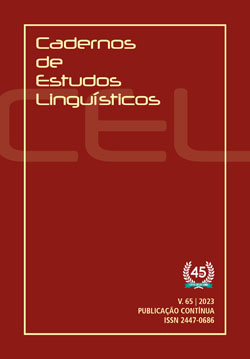Abstract
In this text, I propose to let my imagination run riot about what the future has in store regarding language(s). I undertake this admittedly risky task on the basis of an educated guess and already available clues from what is actually going on. Starting from the premise that what we call language(s) are semiotic reflexes and their by-products of historically given geopolitical configurations, I claim that the fast-changing geopolitics as well as the sweeping changes under way in the way the world is currently configured and constantly being reconfigured must give us cause for pause and reason to opt for a major rethink. It must give us a foretaste of what awaits us down the line in regard to what language, in a not-too-distant future, seems destined to look like. Such speculative flights of imagination have, as I shall argue, the capacity to free up our minds and get them prepared to deal with radical changes, many of which as yet far beyond our wildest dreams that I feel are just around the corner language-wise.
References
BORGHI, Anna M. (2020). A Future of Words: Language and the Challenge of Abstract Concepts. Journal of Cognition. 3. 1. 42. p. 1–18.
DAVIDSON, David. A nice derangement of epitaphs. In: LePore, Ernest ed. Truth and Interpretation. Perspectives on the philosophy of Donald Davidson. Oxford: Basil Blackwell. p. 433-446. 1986.
DUMMET, MICHAEL. A nice derangement of epitaphs: some comments on Davidson and Hacking. In: LePore, Ernest ed. Truth and Interpretation. Perspectives on the philosophy of Donald Davidson. Oxford: Basil Blackwell. p. 459-476. 1986.
GRADDOL, David. (1997). The Future of English? London: The British Council.
GRAY Russell D. , ATKINSON Quentin D. , and GREENHILL Simon J. Language evolution and human history: what a difference a date makes. Philosophical Transactions of the Royal Society. 366 (1567). P. 1090-1100. 2011.
KHOKHLOVA, Natalia. Understanding abstract nouns in linguistic disciplines. Procedia – Social and Behavioral Sciences. 136, p. 8-11, 2014.
LAMB, Sydney. (2004 [1986]). Language and Reality. (Edited by Jonathan Webster). London and New York: Continuum.
MULDER, Jan W. F. How Real Are Linguistic Entities? La Linguistique, 29, 2, p. 141–67. 1993.
PAVEY, Louisa; CHRUCHILL, Susan and SPARKS, Paul. Proscriptive injunctions can elicit greater reactance and lower legitimacy perceptions than prescriptive injunctions. Personality and Social Psychology Bulletin. 48,5, p. 676–689. 2022 May.
RAJAGOPALAN, Kanavillil. The language issue in the 21st century and the centuries ahead: an exercise in crystal-ball gazing. D.E.L.T.A. 35.1. 2019.

This work is licensed under a Creative Commons Attribution-NonCommercial 4.0 International License.
Copyright (c) 2023 Cadernos de Estudos Linguísticos


